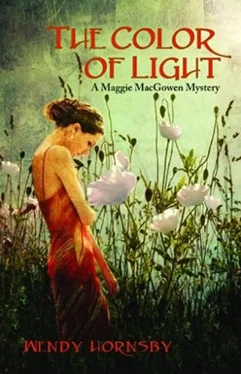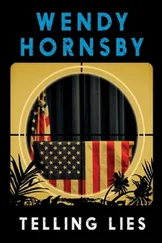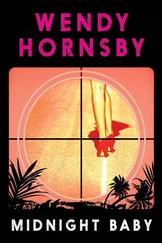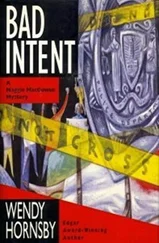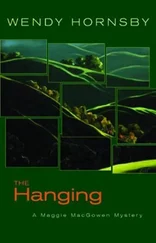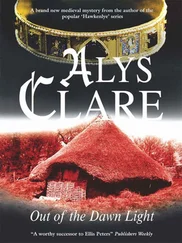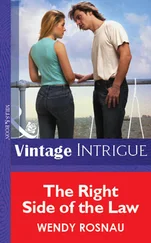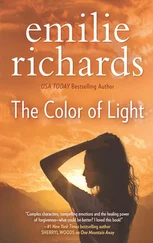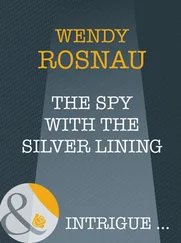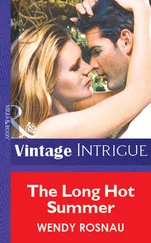“Kevin? Oh my God,” she said, a little giggly. “Remember that Christmas my family flew out? I think we were maybe juniors in high school.”
“I remember,” I said. “You were having a blizzard. When Mom told your dad that it was eighty degrees out here, your family was on the first available flight out of Cleveland.”
“Your parents made you drag me along everywhere you went.”
“They didn’t make me, Susan. I wanted to. We had fun, didn’t we?”
“Poor Kevin, though. He was so cute.”
“He still has his moments.”
Max looked up when we appeared at the den door. “Ladies?”
“Ladies are hungry,” I said.
Kevin lumbered to his feet. “Sorry to hold you up.”
We went through proper introductions. Kevin did his best to be gracious, but I could see the effort it took.
“Anyone else need a drink?” Max asked. Sometime during the afternoon, he had decanted a bottle of red wine that he wanted Susan, a newly certificated sommelier, to try. He poured wine into wide-bowled goblets and I handed them around.
As I gave a glass to Kevin, in the interest of moving us all closer to the front door, I asked, “Join us for dinner?”
“Thanks, but I can’t.” He held up the wineglass. “This hits the spot, but I need to get home. I’d rather tell the kids myself about what’s going on than have them hear it on the street. Or worse, on Facebook.”
“Chin up, my boy.” Max clinked his glass against Kevin’s. “I’ll make those calls and get back to you tomorrow.”
Susan was looking closely at the marquetry table next to Dad’s reading chair. The table had a blue sticky, meaning it was staying.
“This is pretty,” she said.
“It’s something Dad dragged home.” And it was.
Berkeley has a transient population of students. Many of them furnish their residences with cast-offs they find in family attics, garages, and barns. Who knows what treasures might lie buried under their piles of textbooks, laundry, bongs, hookahs, and dirty dishes for the length of their tenure at the university? When they break up housekeeping and move on to the next thing, students frequently dump their furniture on the curb, making it available for anyone to pick up before the trashmen haul it away.
My dad and Dr. Nussbaum now and then would carry home pieces of furniture that caught their eye. That’s how Dad acquired his big early-twentieth-century desk and the round marquetry table that he put beside his reading chair. Not a skimpy end table, it was big enough and sturdy enough to accommodate a lamp, a decanter of scotch and a tray of glasses, a telephone, and maybe three stacks of books at a time. It was tall enough that everything on top was within Dad’s reach.
Now the table held only a lamp, a telephone, the wine decanter, and a yellow legal pad covered with Max’s precisely made notes from his conversation with Kevin.
Susan nodded with appreciation when I told her how Dad had acquired it.
“He had a good eye; it looks like an exceptional piece,” she said. “Two of my friends who are coming tomorrow, Ann and Angie, are antiques dealers. They’re more interested in jewelry, but they’ll be able to give you a rough idea what its history is. You might change your mind about leaving it.”
While we were talking about furniture, Max saw Kevin out. When he came back into the den he poured himself more of the wine. Holding it up to the light, he said, “What do you think about that wine, Susan?”
“It’s lovely,” she said. She twirled her glass and put her nose into the bowl. “Full-bodied, earthy, a hint of anise, I think.” She took a sip and seemed to chew it before she swallowed. “There’s a nice mineral cleanness. I get hints of pepper and black cherry with a bit of chocolate in the finish. What is it?”
“It’s a Central Coast blend. The label calls it ‘Red Table Wine’ and I like it,” he said. “Heavy on zinfandel, I think.”
“The instructor in our course had good things to say about the Central Coast red wines,” she said. “He told us he thinks that Napa Valley has become a sort of Disneyland for wine drinkers, overcrowded and overpriced. The real innovation is happening at small wineries down south.”
Max and I agreed that Napa Valley is overcrowded with tourists, especially during the summer. We both preferred the Central Coast wine region, in no small part because it is easier for us to get there from LA. I told her about a favorite oceanfront boutique hotel in San Simeon, a short and beautiful drive over the Santa Lucias to some of the wineries her instructor recommended. Before we left for dinner, she had placed a conference call to the friends who were joining her in the morning, and received permission to cancel their hotel reservations in Calistoga and find new accommodations in San Simeon. That mission was accomplished with two more phone calls, and they were set to explore the wine country further south.
“I have never heard of five women reaching consensus that easily,” Max said as he ushered us out the front door.
“We’re from Minneapolis, remember,” she said, patting his shoulder as she passed him. “They were sold at ‘oceanfront.’”
We walked down to a small Indian restaurant across the street from the drugstore where Dad had captured Isabelle on film. All through the meal, I kept looking out the window at the door she had stepped out of, almost expecting her to be there, waiting for us when we left the restaurant.
Jean-Paul said that ghosts live only in the imaginations of the living. That doesn’t mean they aren’t real.
“Worn out, Maggie?” Max asked when he noticed that I had dropped out of the conversation.
“A bit, yes.” I folded my napkin under the edge of my plate. “It hit me today that once we hand the house keys over to the university, I won’t have a connection to this place anymore.”
“You still have friends here,” he said.
I thought about that for a moment before I said, “What I have here is a history. All in the past.”
He caught the waiter’s eye and signaled for the check. “Susan, it’s time to take our girl home and tuck her in.”
As we turned up our front walkway, George Loper came out onto his porch.
“How long is that damn Dumpster going to sit there?” he wanted to know.
“It’s scheduled for pick-up tomorrow,” I said.
“Okay then. If it’s out there any longer, it’s going to start smelling.”
“Good night, Mr. Loper,” I said, pulling out the house keys. There should have been nothing in the Dumpster that smelled worse than old rubber balls or well-worn tennis shoes, but I had to admit that, as I passed it, I caught a whiff of something that had acquired a certain gamey tang. Maybe a neighbor had contributed some household garbage to the mix inside.
Later, with Max snoring in the room next door to mine and Susan safely tucked in bed in the room at the end of the hall, I slept the sleep of the dead.
– -
Monday morning, five trucks were scheduled to come and haul things to various destinations. The first of them arrived early, before we had finished our first cups of coffee. Uncle Max declared that he would be most helpful if he stayed out of the way. He took his telephone and his yellow legal pad to the backyard to make phone calls on Kevin’s behalf and I went out front to make sure that whoever was backing into the driveway did not go off the side into Dad’s beautiful flower borders.
A staffer and a student assistant from the university library came to pick up the books the science librarian had selected from Dad’s collection. They loaded the boxes quickly and were hardly out of the driveway before the truck from the thrift store arrived. The pile of donations in the garage seemed huge, but the crew worked efficiently and had it loaded in a surprisingly short time; I could again see most of the garage floor. As the driver handed me a receipt for Mom’s tax records, I asked him to please come again on Tuesday for what I hoped would be one last load.
Читать дальше
